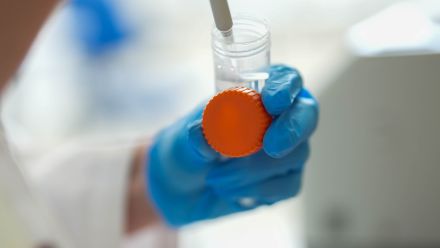Empowering Indigenous communities in genomics
Internationally leading Aboriginal researcher and clinician Professor Alex Brown will lead a National Indigenous Genomics Consortium for the future of health for Indigenous Australians.
Professor Brown was recently appointed Professor of Indigenous Genomics by The Australian National University (ANU) and the Telethon Kids Institute. He also leads the Aboriginal Health Equity Theme at South Australian Health Medical Research Institute (SAHMRI).
The Consortium has been awarded a prestigious $5-million Synergy grant by the National Health and Medical Research Council (NHMRC) to drive the establishment of Australia's first large scale efforts in Indigenous genomics.
Researchers from the ANU National Centre for Indigenous Genomics (NCIG), Mrs Azure Hermes, Professor Graham Mann, Professor Simon Easteal and Dr Sharon Huebner will join Professor Brown and five experts from the Garvan Institute of Medical Research, the QIMR Berghofer Medical Research Institute, the University of Adelaide, the University of New South Wales, and the University of Western Australia as its Chief Investigators.
Genomics, the study of genes encoded in an individual's whole set of instructions written in DNA, is seen as a once-in-a-generation chance for the advancement of health care.
"Australia is on the cusp of a new era in personalised medicine that will bring deeper insights into the architecture of rare diseases among children and common diseases like heart disease, diabetes and cancer," Professor Brown said.
"Unfortunately, Indigenous Australians have been missing out on accessing the benefits of genomics and clinical care due to being excluded from national genomics efforts."
To ensure equitable access to the life-changing potential of genomic medicine in diverse populations, the Consortium brings together national leaders in Indigenous health, data sciences, genomics, ethics, and population and clinical genetics.
"This is a terrific vote of confidence in the plans that Professor Brown, NCIG and our partners around the country have developed - we are all very excited to be bringing our diverse skills to the goal of Indigenous genomic medicine," said Director of the John Curtin School of Medical Research Professor Graham Mann, the Interim Director of NCIG.
"This work is particularly significant in how it brings together, in a culturally-appropriate manner, Indigenous priorities and outstanding science and, in doing so, creates a whole new level of meaning and impact," Dean of the ANU College of Health and Medicine, Professor Russell Gruen, said.
Together, the team describes its purpose as enshrining Indigenous peoples' sovereign rights to define, lead and fulfil their own destiny in a rapidly changing genomics landscape.
To this end, the Consortium plans to develop Indigenous-led governance and administrative mechanisms collaboratively over the coming months.
The massive undertaking will create employment for an Indigenous and non-Indigenous genomics workforce and strengthen connections between the health industry and Indigenous communities.
It will also define and communicate policy, target the major causes of inequality experienced by Indigenous Australians, and reduce the time it takes for Indigenous children to be diagnosed with rare diseases.
Synergy Grants provide $5 million over five years to support outstanding multidisciplinary teams of investigators collaborating in search of answers to major questions that can't be resolved by a single investigator alone. Successful recipients are generally teams boasting diversity across gender, career stage and cultural background, which work together to address major problems in human health.


